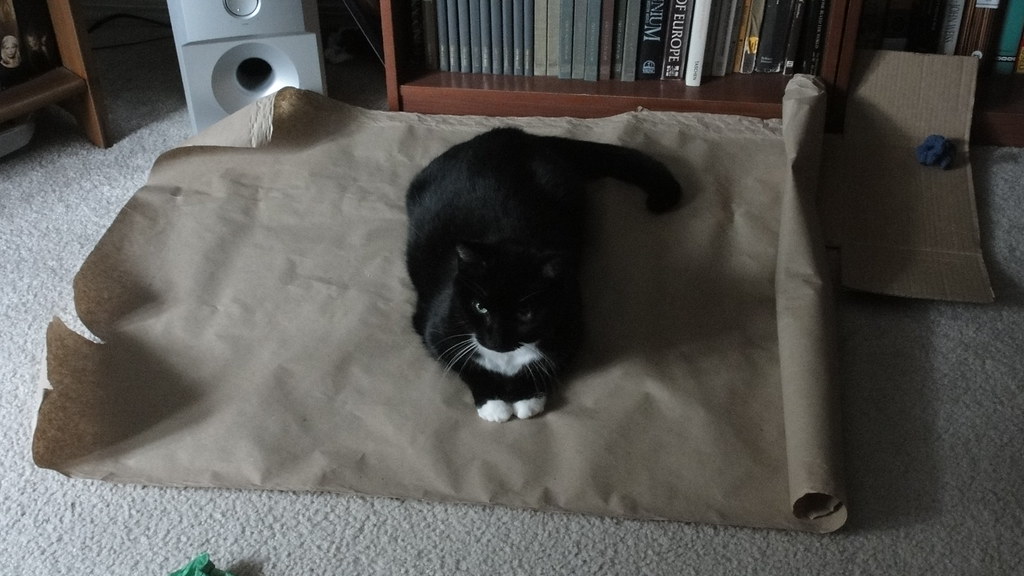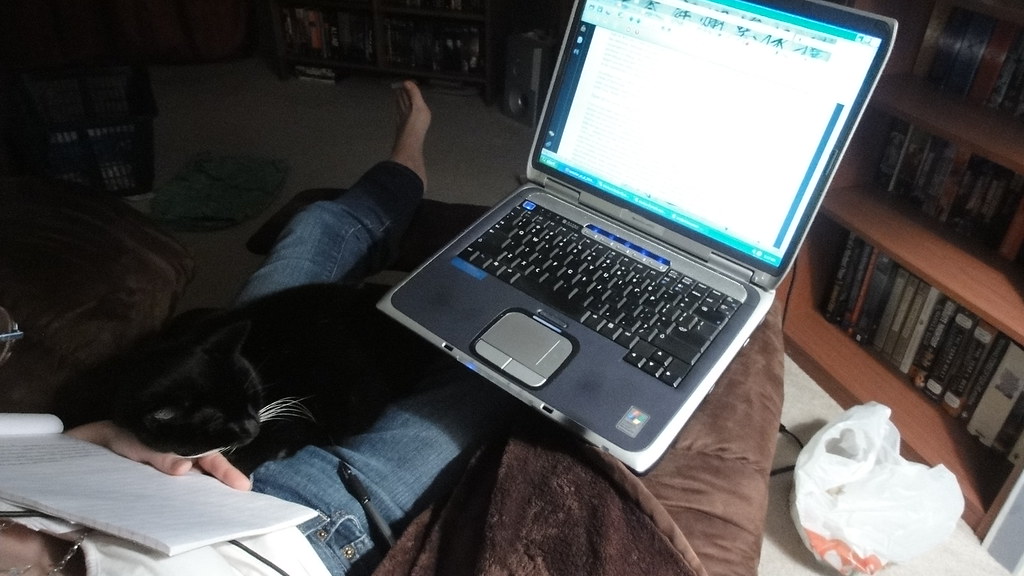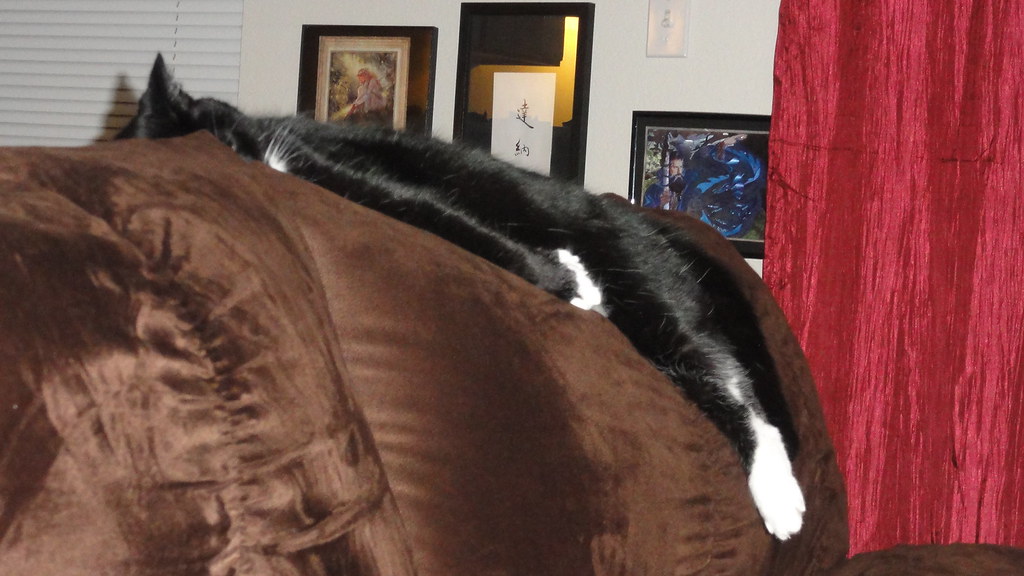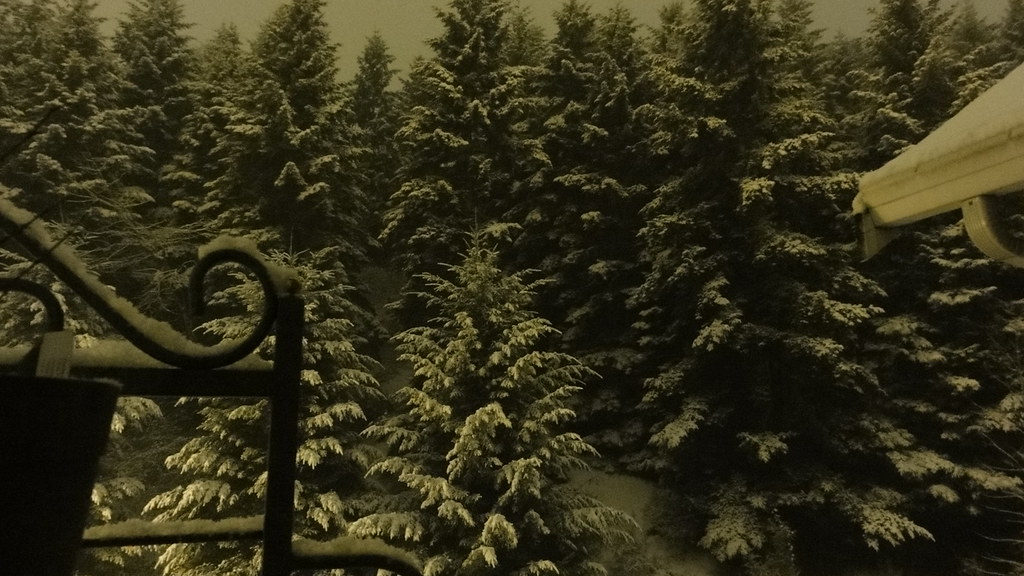Today in the Dojo: Dana’s Editorial on writing, research, and her personal preferences regarding authors who Really Know Their Shit
It has taken me years of struggle, hard work and research to learn to make one simple gesture, and I know enough about the art of writing to realize that it would take as many years of concentrated effort to write one simple, beautiful sentence.
-Isadora Duncan
No fewer than two of my friends have taken me to task recently for devoting so much time to pure research. “You’ll never know everything, Dana” and “You’ve got to stop researching and just write at some point” are the common themes here. And they’re both right. But there’s good reason for devoting time to research, and for going in-depth with it.
So this article’s for them. And it’s for all of you who get laughed at for engaging in Extreme Research.
The Primary Types of Authors
I’ve read a hell of a lot of books, and I’ve discerned broad patterns among writers. There’s the type who get all of their research done from movies and fiction books. There’s the type who have read a book or two on the subject and then relied on sheer imagination for the rest. There’s the kind who only Write What They Know, and gods forbid they should write anything outside of their own area of expertise. And then there’s the kind who research not only widely but deeply, and come across as experts on about thirty-seven disparate subjects.
Those last kind are the ones I’m trying to emulate. And I have news for you. They’re not experts on every subject they sound expert in – they’ve just done enough research to sound like they are. They know just a little bit more than the read-two-books types, and they know just enough to make the real experts smile proudly. It’s actually not that hard to get there.
Every writer has to make a decision about his or her work: how much research is necessary? Great stories have been written by all the types, from the crassest “Hey, it worked in Star Trek” to the “I’m a theoretical physicist with a background in socio-psychology and honorary degrees in ten billion other subjects.” No amount of knowledge is going to save you if you aren’t good at telling stories. And any amount of ignorance is forgiven by the majority of the reading public if you tell a ripping good tale.
That being so, you may well ask why anyone wouldn’t go for the soft option of watching a few movies and then faking it. The answer is deeply personal. And it has a lot to do with the way you want your writing to be viewed.
Big Mac or Filet Mignon?
I personally despise Big Macs. I have several friends who would happily live on nothing else. It’s all a matter of taste.
So know your tastes. If you adore books that tell a ripping good story without any concern for facts, you’re probably not going to be one of those authors who obsesses over the veracity of every detail, nor should you be. Make it all up and have a great good time doing it. There’s absolutely nothing wrong with it.
I, however, have noticed a distinct pattern in my reading tastes: I gorge on books that are “true” in the sense that the author knew what they were talking about. They didn’t make things up whole cloth. They extrapolated from a solid foundation of knowledge about the “real” world. And when I find authors who play fast and loose with the facts, I can’t stop reading their books fast enough. It drives me crazy when I can tell that the author is basing his or her fantasy world on misunderstood rehashes of Tolkien, D&D, and the latest Hollywood offering on King Arthur. I can’t stand “science” fiction writers who wouldn’t know an electron from a positron and yet based their entire story on what they believed to be the difference (and were dead wrong). To me, this is no better than the infomercials selling ionized water claiming it will cure any ill. Their science is faulty, therefore so is their premise, and the whole foundation of what they’re trying to get me to buy in to is faulty. I can tell when an author is blowing smoke up my ass, and I don’t care how good the plot or characters are after that – they’ve lost me.
So I can’t write the kind of story where I don’t know as much as possible about my subject matter. Just can’t. And I won’t be limited to writing what I already know – who wants a fantasy about a woman who works in a call center and dreams about being a fantasy author? That’s all I know from firsthand experience. Forget it. So that means research and plenty of it.
Science Fiction and Fantasy Authors – Take Note
Another gripe I have is the plethora of crap on the shelves in my genre. I refuse to be counted among the many who don’t know what they’re talking about, who decide that since they played D&D in high school they know everything there is to know about dragons, elves and wizards, and write accordingly.
It’s bad enough when you substitute fake knowledge for the real thing in fantasy – but when you’re writing science fiction, it’s deadly. The fast way to the rejection pile is to write a science fiction story using no more science than you’ve picked up from two episodes of Nova.
Editors see a billion submissions a year from people who don’t know what they’re talking about. If you’re going to write in these genres, do the work. There’s no excuse not to.
Knowledge is Beauty
I just love knowing things. Nothing makes me happier than to find out things about things. That’s why I don’t spend my nights watching the latest CSI rerun.
You may think that research is a dread thing to be done only because you must, but knowing more about the subjects you’re writing about make you appreciate the world more. Did you know I used to hate science and math? Well, then I had to get into those subjects in order to write science-based fantasy, and suddenly, I discovered their beauty. It’s not that dry crap you get in school. Nothing is. I’ve researched so many formerly-despised subjects now that I’ve lost count, but the more I know, the more things I love. And the more interesting the world becomes.
So if you’re going to do research, don’t do it just for your books. Do it for yourself. Do it for the excuse to do crazy things you’d never in a million billion years do otherwise. It’s the best excuse ever: “Yeah, I had to take a Carribbean cruise for the book I’m writing” or “I had to buy this Prada handbag to really understand how my character relates to the finer things in life.” My gods, people, milk it!
And if you get published, some of this stuff actually becomes tax-deductable…
Knowledge Generates Ideas
The more I’ve learned, the more stories I’ve been able to tell. Possibilities become endless when you know more than what you’ve learned from reading Harlequin Romances. For instance, “Schroedinger’s Bum.” I couldn’t have written that story without my knowledge of quantum physics. Because I know quantum physics, I had an original idea and got out a story in about two hours.
Not bad, eh?
I can’t count the number of times I’ve been horribly blocked, and had new knowledge come to the rescue. I get stuck by ignorance, unstuck by new knowledge. And as for new story ideas, well. Let’s just say that the more I know, the more stuff I want to write, and most importantly can write.
Knowledge Keeps You Original
The more you know, the more unique ideas you can come
up with. A lot of people I tal
k to who want to write pitch me ideas that I’ve heard a thousand times before. Then they go off and dig up a little background on their intended story subject, and each time they come back, what they’ve learned has led to a better, more original idea.
The same is true for me. Back before I knew many things, all I could do was write an old, tired quest-type book. Now that I know more things, I’ve been able to break free of that and come up with things I’ve never seen written before. Ever. And those whacky ideas work because they’ve sprung from things that existed in the real world. They result from a synthesis of the oddball things I’ve researched – such as mythology, quantum physics, and fine art. The more you know, the more you can mix-and-match for something totally fresh that at the same time sounds very real indeed.
Research Give You Something Useful to Do
We all get blocked. We all have times when everything we write seems trite and contrived and more wooden than Pinnochio. So instead of filling your time with picking lint out of your belly button or gambling your life away on PartyPoker.com, might as well do the research. You’ll get inspiration, and your stories will be all the better for it.
And remember that research also includes reading endless amounts of fiction. Gotta research what’s getting published these days. It’s hard work. Honestly. Nothing to do with lying around like a lazy sod drinking Coke and eating Cheetos until the belly explodes. Not having any fun at all, no, sir…
Someday, the Research Must Take Back Seat
Alas, one cannot know everything, as my wise young friend has pointed out. There comes a day when all this knowledge must be turned into immortal prose. And so it’s pretty silly to make it your goal to know absolutely everything about everything.
The trick is to do just enough research to have knowledge of a decent depth, adequate to your story’s needs, and enough to fool a few random experts into thinking you actually know what you’re talking about, and then just go for it. Sure, you’re going to come across some glaring areas of ignorance while you’re writing. Just like in housepainting, you’ll have to do some touch-ups. You’ve just got to accept that and get it done.
I’ve done that successfully with many, many short stories, and while the research for the novel’s going to take far longer, I still have limits. The research will end, and the writing will begin.
If you’re tempted to do endless research, set aside a good chunk of time to do your research in, do it, and then start writing. That way you won’t get trapped in the research-till-you’re-too-old-to-write-the-damned-book pit.
And then enjoy all the people exclaiming about how you really know what you’re talking about.






